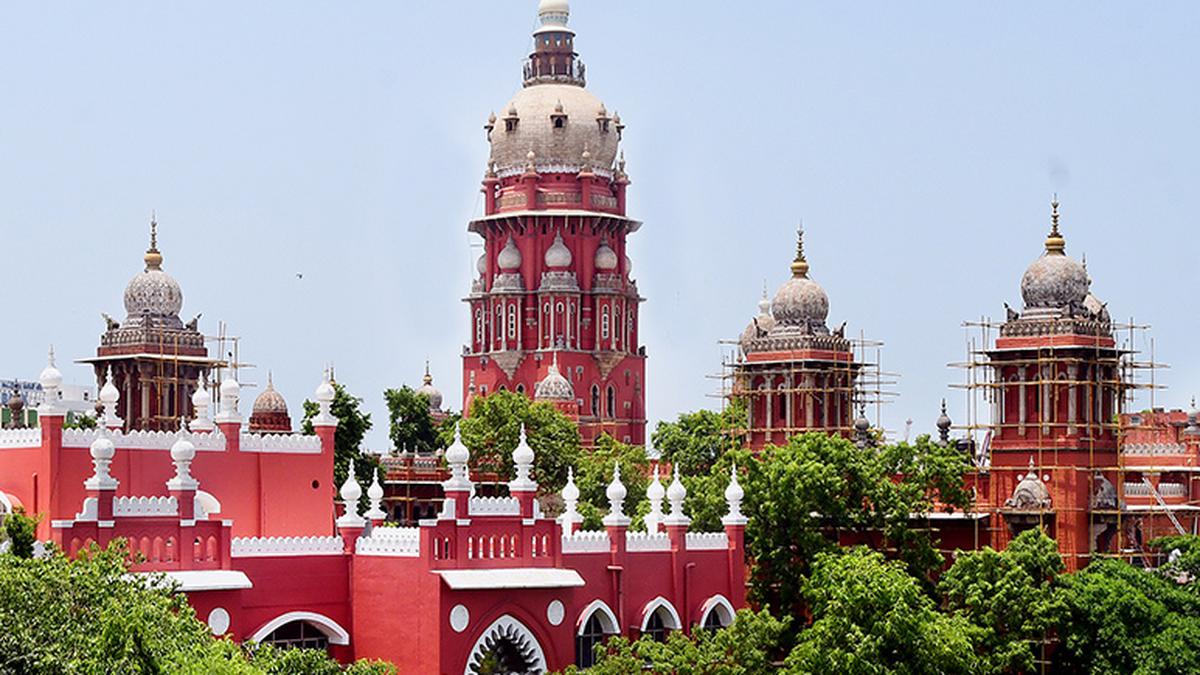
How can amendment to statutory rules for serving liquor in convention halls, stadia survive without being tabled before Assembly, asks Madras High Court
The Hindu
Madras HC questions survival of G.O.s on liquor licence rules w/o legislative nod. CJ & Justice raised query on G.O.s issued for amending TN Liquor Rules & allowing liquor serving during national/international events. Bench granted time to A-G to obtain instructions & extended interim stay.
The Madras High Court on Monday wondered how a Government Order (GO) issued on April 26 for amending the Tamil Nadu Liquor (Licence and Permit) Rules 1981, and thereby introducing a special licence regime for possessing and serving liquor to guests during national and international events in convention halls and stadia, can survive without the amendment having been placed before the Legislative Assembly.
Chief Justice S.V. Gangapurwala and Justice P.D. Audikesavalu raised the question during the hearing of two writ petitions filed by K. Balu of Advocates Forum for Social Justice. He had challenged a March 18 G.O. which permitted serving of liquor even during household celebrations at marriage halls and banquet halls as well as the overriding April 26 G.O. which restricted the special licence to national/international events.
Arguing the matter on merits, senior counsel N.L. Rajah contended both the orders suffered from manifest arbitrariness. However, the Chief Justice intervened and told Advocate General R. Shunmugasundaram the G.Os had been issued in exercise of executive authority though any amendment to the statutory rules require exercise of legislative authority which appeared to be completely absent in the present case.
He pointed out that Section 54 of the Tamil Nadu Prohibition Act of 1937 empowers the State government to frame rules for the effective implementation of the law. Section 54(3) states that all rules framed under the Act should, as soon as possible, be tabled before the Legislative Assembly so that the latter could discuss the issue and take a call on either adopting the amendments or making changes or rejecting them.
Wanting to know whether the Legislative Assembly had convened after the issuance of the two G.Os under challenge and whether the amendments to the statutory rules were tabled before it, the first Division Bench granted time till August 11 for the A-G to obtain necessary instructions from the officials concerned. It also extended till then an interim stay granted by the High Court on April 26 with respect to the operation of the March 18 G.O.
“It is made clear that the order of interim stay would not preclude the respondent (government) from tabling the Rules before the Legislative Assembly as contemplated under Section 54(3) of the Tamil Nadu Prohibition Act,” the first Bench wrote. It further pointed out that the lifetime of any executive action, which requires a legislative nod, could only be for a maximum of 90 days and therefore doubted whether the two G.Os could still be considered to be surviving.
It was another Division Bench led by Justice S. Vaidyanathan which had stayed the March 18 G.O. alone on April 26 since the second writ petition challenging the April 24 G.O. had not been filed then.













